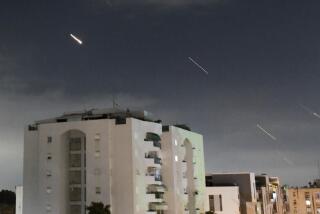Growth in Al Qaeda’s presence seen
Al Qaeda has expanded its presence in Afghanistan, taking advantage of the sinking security situation to resurface in the country it was forced to flee seven years ago, the top U.S. military intelligence official testified Tuesday.
Army Lt. Gen. Michael D. Maples, director of the Defense Intelligence Agency, described Al Qaeda’s efforts as one of the reasons for the Obama administration’s decision last month to order additional troops to Afghanistan.
Afghanistan is no longer the haven for Al Qaeda that it was before the Sept. 11 attacks in the United States. But in testimony before the Senate Armed Services Committee, Maples said, “I believe Al Qaeda’s presence in Afghanistan is more significant, although still at a relatively minor scale, than we have seen in the past.”
Maples also cited intelligence indicating that Iran is playing a more active role in supporting a militant group based in Pakistan that is launching attacks against U.S. and Afghan forces.
“We are seeing some increased activity between Iran and the Haqqani network,” Maples said, referring to a militant group that has carried out a series of brazen strikes against targets in and around Kabul, the Afghan capital.
Maples testified alongside Director of National Intelligence Dennis C. Blair in a hearing that covered an array of national security threats.
Blair sought to clarify the intelligence community’s views about Iran’s nuclear ambitions, after recent comments from senior military officials created confusion about whether Tehran has already acquired enough nuclear material to make a bomb.
“We assess now that Iran does not have any highly enriched uranium,” Blair said.
Iran has stockpiled low- enriched uranium that could fuel a nuclear power plant or be refined for a bomb. Asked whether Tehran intends to take that step, Blair said, “We assess that Iran has not yet made that decision.”
Iran’s ambitions in Afghanistan are also uncertain. The Islamic Republic’s Shiite Muslim leaders “don’t want to see a Taliban-dominated Afghanistan,” Maples said, referring to the Sunni regime that protected Al Qaeda.
But U.S. intelligence officials believe that Iran has provided weapons and other support to elements of the Taliban insurgency as part of an effort to destabilize Afghanistan and threaten U.S. forces.
--
More to Read
Start your day right
Sign up for Essential California for news, features and recommendations from the L.A. Times and beyond in your inbox six days a week.
You may occasionally receive promotional content from the Los Angeles Times.





